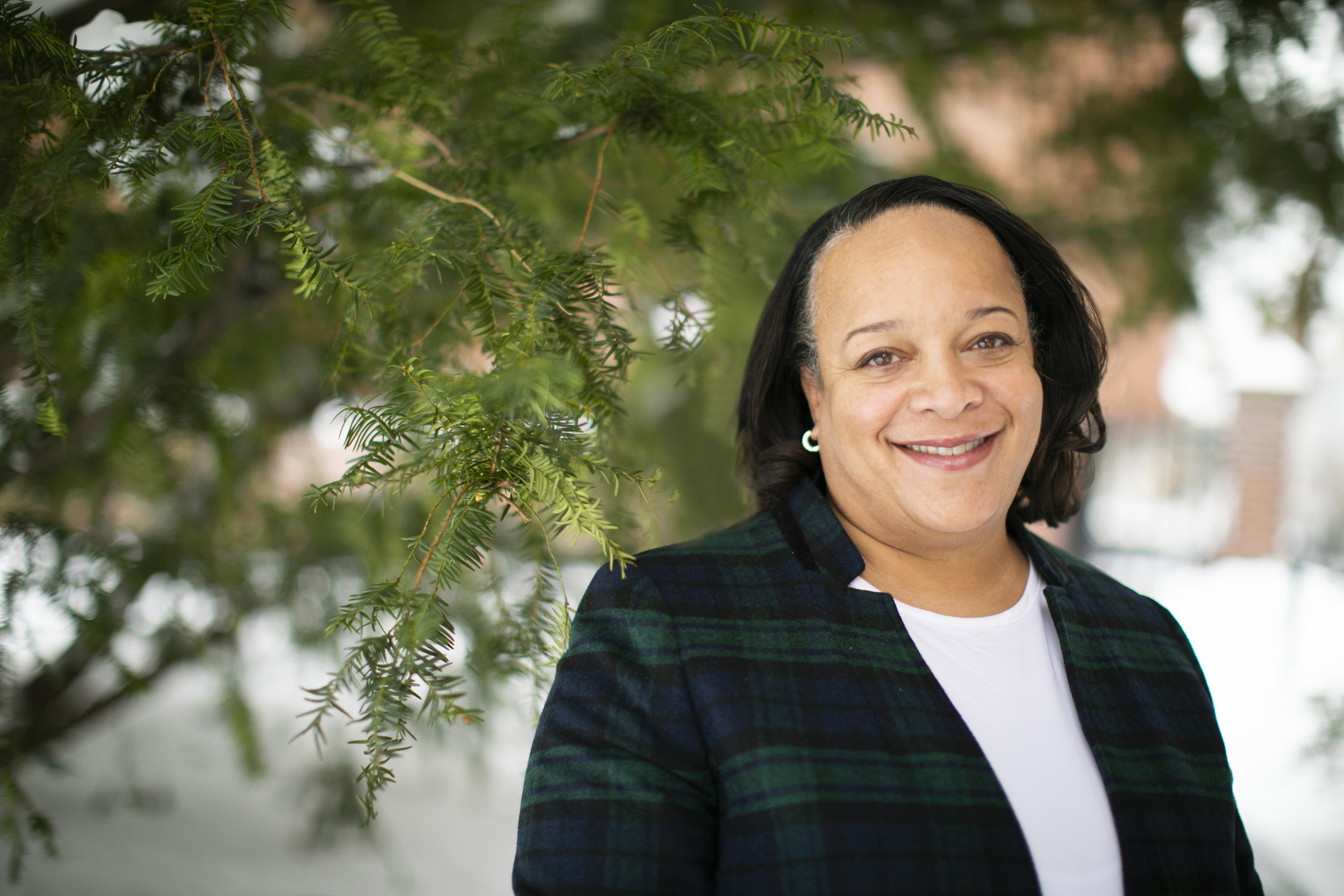
“I hope that this gift can get us back to that essential truth of just how critical teachers are and how much they give to our students, our families, and our communities,” said Dean Bridget Long.
Stephanie Mitchell/Harvard Staff Photographer
Historic gift an investment in pandemic-weary educators, dean says
Financial aid for master’s program comes as teachers confront debt, classroom challenges
The largest gift in the history of the Harvard Graduate School of Education, announced Wednesday, will back endowed scholarships for students in the Teaching and Teacher Leadership master’s program. The anonymous $40 million gift comes at a pivotal moment in teacher training, as the pandemic drains morale and resources and young educators confront stifling debt. The Gazette asked the Ed School’s dean, Bridget Long, to share her vision for how the support will reach those who need it most — teachers, administrators, and students in K-12 classrooms nationwide. The interview was edited for clarity and length.
Q&A
Bridget Long
GAZETTE: What’s the significance of the gift for the School?
LONG: I am especially proud that it is focused on financial aid for our students, and most particularly, for our aspiring and experienced teachers in the Teaching and Teacher Leadership program. The gift will provide endowed scholarships for our students to allow them to focus on their training so that they can go into their professions with significantly less debt. Teachers are at the core of so much of what we’re trying to do for students, families, and communities, and they play a critical role that’s under real strain, especially right now, due to the pandemic.
GAZETTE: What has the COVID crisis taught us about U.S. education?
LONG: The pandemic has exposed long-existing problems in the education system and made a number of them worse. Foremost, it has made clear that children come to school not only for academic support, but also for food, health care, and wellness support. So many children are going through trauma because the pandemic has not only affected health, it has also had an impact on the economy, labor markets, and issues of social justice and crime. Schools, and teachers in particular, have offered critical support and full wraparound services to students. As we think about what is necessary to prepare a teacher, it’s clear that they have to be informed not only about subject matter, but how issues of trauma and poverty also influence the well-being of the students. If students are hungry or sick or are dealing with the loss of a grandparent from COVID, that is going to interfere with their education. That’s part of what the training is to be a good teacher: preparing our graduate students to grapple with some of the complexities and challenges of what it means to work in the school system now, and identifying some of the interventions, supports, and approaches that can address the wide-ranging needs of K-12 students and their families.
The second impact of the pandemic is that for the teachers themselves, this been a time of great uncertainty and huge safety concerns. Teachers are also dealing with the fact that their students are at very different levels in terms of their learning because of the inequities caused by the pandemic. As a teacher, if you’re standing in front of a class of 25 or 35 students, you realize that each one of them is going through different experiences, which puts additional pressure on you to be able to adapt and to try to address your students’ needs. All of that is putting an incredible strain on teachers. I hope that this gift can get us back to that essential truth of just how critical teachers are and how much they give to our students, our families, and our communities. They need our support, and they need our investment.
GAZETTE: How do you think donations like this can make a difference in the real world, outside the Ed School?
LONG: It’s important to understand that when we invest in financial aid for HGSE students, the benefits multiply because when they graduate, they go out into communities where they affect hundreds of other learners, families, and entire communities. Investment in one of our students already is an investment in hundreds, and potentially, thousands of students and learners of all ages around the world.
Building from the legacy of our Harvard Teacher Fellows program, founded in 2015 to prepare Harvard College students to become teachers, as well as our Teacher Education master’s program, our graduates go into schools to be teachers, but they also often grow to be the lead teachers, the instructional leaders, and sometimes assistant principals or the principals. They are the ones who rewrite curriculum or are rethinking student supports; they’re the leaders in their districts. What we see over time is not just that they’re impacting one classroom, but they start to impact their schools.
Our network of alumni is large. We already have five cohorts of alumni through the Harvard Teacher Fellows program and alumni from our Learning and Teaching master’s program. When you have that kind of network, they can reinforce each other and start to change systems. Our mission is to prepare these talented folks to be excellent teachers, and we’re sending them out there with strong aspirations and a commitment to improving education. They affect not only one classroom, but in fact affect whole schools and school systems.




